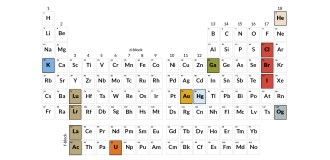Feature
-
 Chemistry
Chemistry150 years on, the periodic table has more stories than it has elements
The organized rows and columns of the Periodic Table hide a rich and twisting history.
-
 Science & Society
Science & SocietyTop 10 stories of 2018: Climate change, gene-edited babies, hidden craters and more
2018 was a year all about impact — on the planet, on solving crimes, on mosquito populations, on reversing paralysis, and more.
-
 Health & Medicine
Health & MedicineA gut-brain link for Parkinson’s gets a closer look
Early evidence suggests that Parkinson’s may be a gut disease that affects the brain.
By Laura Beil -
 Ecosystems
EcosystemsBeavers are engineering a new Alaskan tundra
Climate change has enabled the recent expansion of beavers into northwestern Alaska, a trend that could have major ecological consequences for the region in the coming decades.
By Sid Perkins -
 Environment
EnvironmentEngineers are plugging holes in drinking water treatment
Drinking water quality has come a long way in the past hundred years — but challenges remain.
-
 Ecosystems
EcosystemsHow mammoths competed with other animals and lost
Mammoths, mastodons and other ancient elephants were wiped out at the end of the last ice age by climate change and spear-wielding humans.
-
 Health & Medicine
Health & MedicineMalaysia is ground zero for the next malaria menace
With deforestation in Malaysia, monkeys and humans are getting closer — and mosquitoes are infecting humans with malaria from monkeys.
By Yao-Hua Law -
 Tech
TechVirtual reality therapy has real-life benefits for some mental disorders
Cheap, user-friendly virtual reality hardware could help VR therapy go mainstream. Some treatments are ready for primetime, while others are still in early testing.
-
 Life
LifeHow to make organ transplants last
New strategies aim to help transplant recipients keep their organs healthy with fewer (or no) immune suppressing drugs.
-
 Science & Society
Science & SocietyThe SN 10: These scientists defy limits to tackle big problems
With a drive to understand how things work, these young researchers are making a mark in sustainable energy, medicine, astronomy and technology.
-
 Psychology
PsychologyShahzeen Attari explores the psychology of saving the planet
Merging psychology with engineering, Shahzeen Attari probes how people think about conservation, energy use and climate change.
By Bruce Bower -
 Life
LifeEmily Balskus uses chemical logic to study the microbiome
Using chemistry to peer at the microbial world, Emily Balskus is revealing how microbes influence human health.